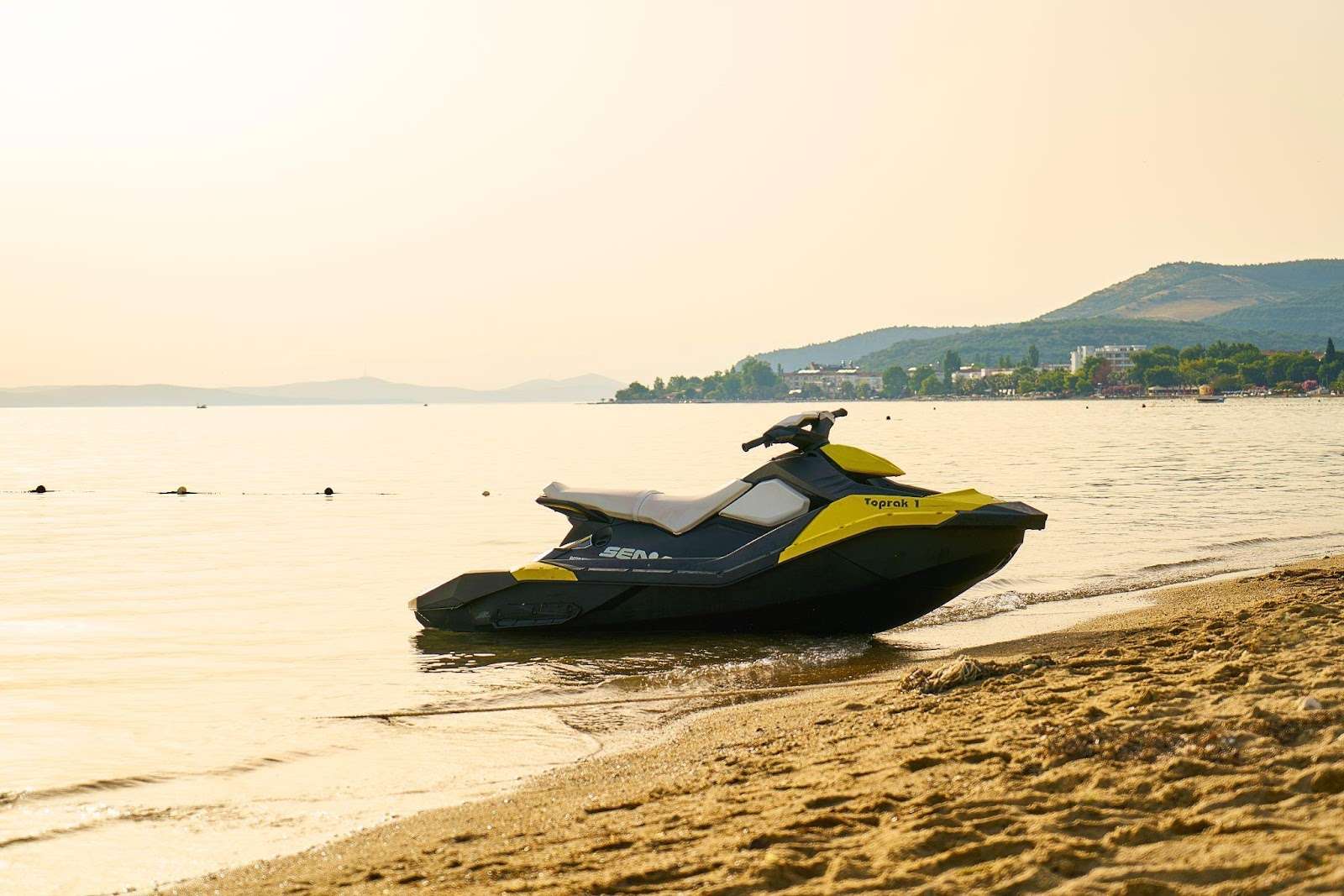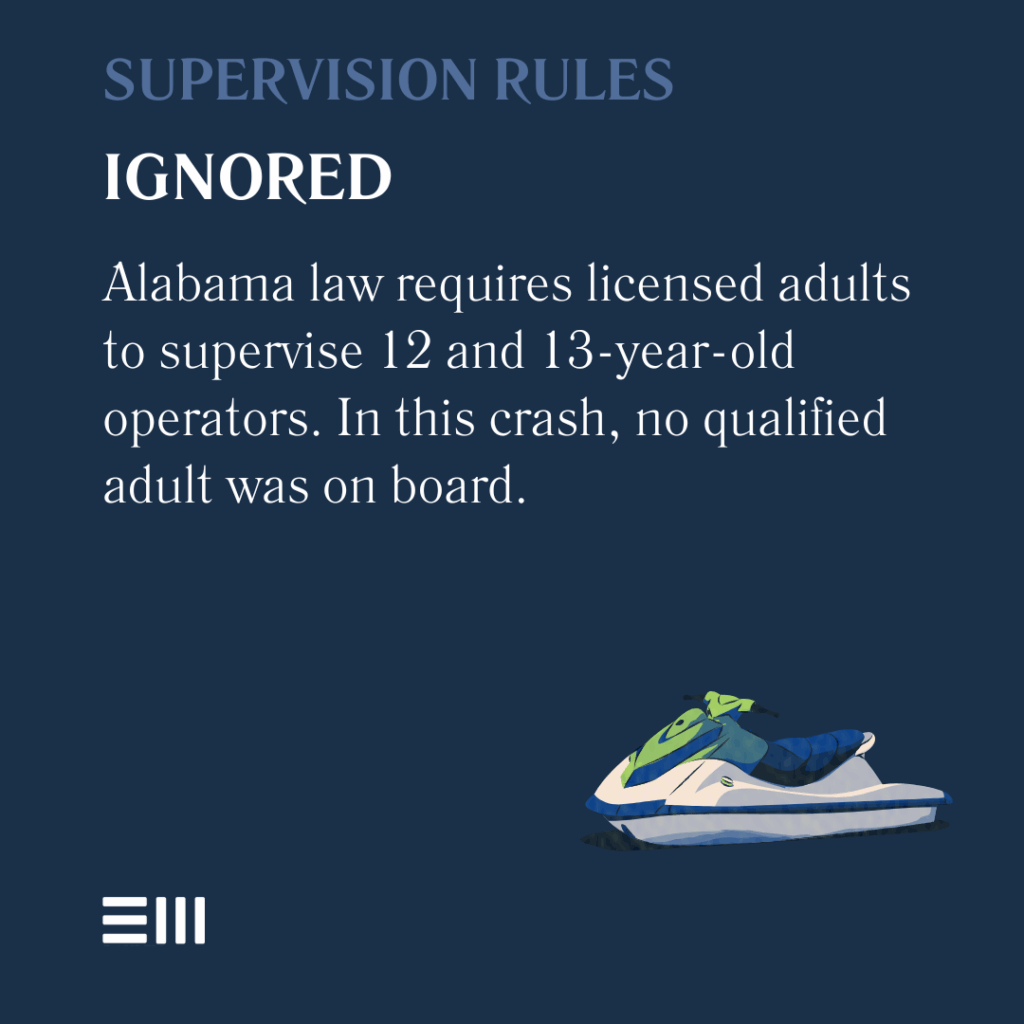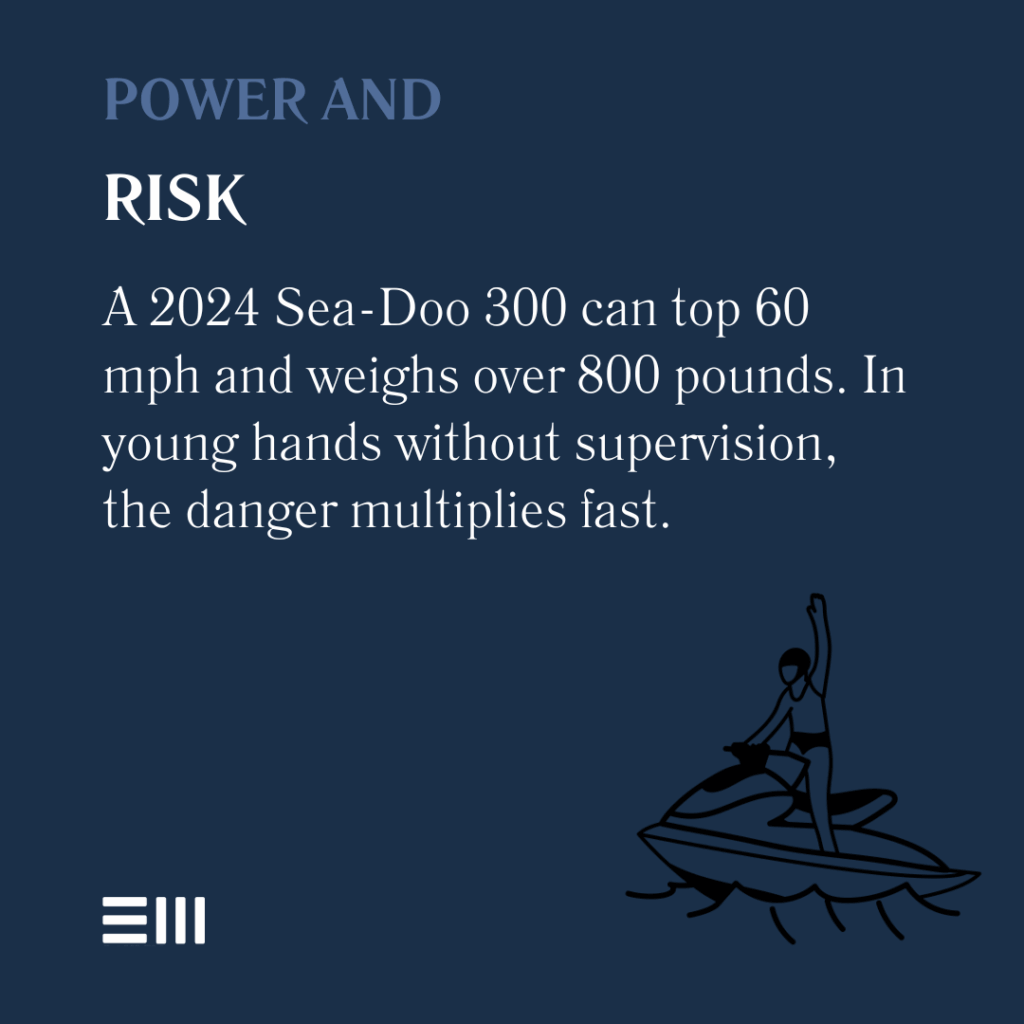
A harrowing accident on Alabama’s Lake Martin has thrust watercraft safety regulations into the spotlight after a 12-year-old girl operating a high-powered Sea-Doo was launched airborne and landed on a roadway, raising critical questions about supervision requirements and liability in recreational boating accidents.
Sunday Afternoon Terror on Lake Martin
What should have been an enjoyable day on the water turned into a nightmare on September 31st when a 12-year-old girl crashed her 2024 Sea-Doo 300 into the Lake Martin causeway on Wake Robin Road around 1:00 p.m.
The young operator had been towing another 12-year-old on a knee board when the collision occurred.
The impact was so severe that it launched the injured girl through the air, sending her crashing onto the roadway above the causeway. Emergency responders immediately airlifted her to a nearby trauma center for treatment of what witnesses described as serious leg injuries.
“I saw she had a deep gash on her leg,” one neighbor who rushed to help told local news station WTVM.
Legal Citation Reveals Supervision Violation
The Alabama Law Enforcement Agency’s investigation revealed a critical safety violation. Jennifer F. Hartsfield, 43, of Alexander City—the registered owner of the jet ski—received an Alabama Uniform Boating Traffic Citation for “Giving Permission to Operate a Vessel Without a License.”
This citation demonstrates how quickly recreational activities can result in serious legal consequences when safety protocols are ignored.
Alabama’s Complex Watercraft Age Requirements
According to the Alabama Law Enforcement Agency, no one under age 12 can operate motorized watercraft on Alabama waterways. For 12 and 13-year-olds, the rules become more restrictive. While they can apply for a vessel operator’s license, they cannot operate watercraft alone until they reach 14 years of age.
Even with proper licensing, 12 and 13-year-old operators can only operate vessels when “there is someone 21 years old or older on board, who also has a vessel operator’s license in possession, and is seated in a position to take immediate control of the vessel if necessary.”
This regulatory framework reveals the gap that may have contributed to the Lake Martin accident—the absence of required adult supervision.

Legal Implications for Watercraft Accident Victims
Watercraft accidents in Alabama often involve complex liability issues that extend beyond the operator to include vessel owners, supervisors, and potentially manufacturers.
When children are injured in boating accidents, several parties may bear legal responsibility:
- Vessel Owners: Adults who permit underage operation without proper supervision face potential criminal and civil liability.
- Adult Supervisors: When required supervision is absent or inadequate, supervising adults may be held accountable for resulting injuries.
- Equipment Manufacturers: In cases involving mechanical failures or inadequate safety warnings, manufacturers may bear responsibility.
Each of these liability factors must be carefully analyzed to determine accountability and build a comprehensive case under Alabama’s maritime and personal injury laws.
The Challenge of Proving Negligence in Watercraft Cases
Unlike automobile accidents, watercraft accident cases present unique challenges for personal injury attorneys. Alabama’s waterways are governed by both state regulations and federal maritime law, creating a complex legal landscape.
The citation issued to Hartsfield suggests clear regulatory violations that could support liability claims. However, determining damages in cases involving children requires careful consideration of long-term medical needs and psychological trauma.
High-Performance Watercraft and Young Operators
The involvement of a 2024 Sea-Doo 300 raises questions about whether high-performance watercraft are appropriate for young operators. Modern jet skis can reach speeds exceeding 60 mph and require significant skill to operate safely.
These powerful machines can weigh over 800 pounds and generate tremendous force during collisions. The combination of high speeds, limited experience, and inadequate supervision creates serious accident risks.

Understanding Compensation for Watercraft Injuries
Families dealing with serious watercraft injuries face mounting medical expenses and potential long-term costs.
Compensation in personal injury cases involving watercraft accidents can include:
- Medical expenses and ongoing rehabilitation costs.
- Lost income for parents caring for injured children.
- Pain and suffering recognition.
- Future care needs and psychological counseling.
The extent of compensation depends on injury severity, long-term prognosis, and the degree of negligence involved in the accident.
The Ongoing Investigation
Alabama Law Enforcement Agency officials continue investigating the September 31st accident, examining factors including proper supervision, watercraft speed, and environmental conditions that may have contributed to the collision.
Moving Forward After Tragedy
This incident serves as a sobering reminder that watercraft safety extends beyond individual operators to include vessel owners, parents, and the broader community. Alabama’s licensing and supervision requirements exist to prevent exactly these types of tragic accidents.
For families enjoying Alabama’s waterways, this case underscores the importance of understanding safety regulations, ensuring proper supervision for young operators, and recognizing that recreational activities carry serious legal and financial risks when safety protocols are ignored.
Let Justice Roll
If you or a loved one has been injured in a watercraft, jet ski, or boating accident in Alabama, the experienced personal injury attorneys at Baxley Maniscalco are here to help. Our team understands the complexities of watercraft accident cases and the unique challenges they present under Alabama law.
Located in Oxford, Alabama, Baxley Maniscalco has built a reputation as experienced, aggressive attorneys who fight tirelessly for their clients’ rights.
We understand that watercraft accidents involving children present particularly sensitive situations requiring both legal expertise and compassionate representation.
Can't find what you're looking for? Search our site below.










